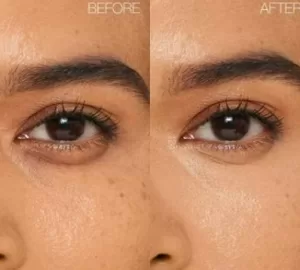A glowing, healthy complexion is a goal for many, and face serums have become an essential step in modern skincare routines. But is face serum necessary? Understanding its benefits and knowing the best time to apply it can transform your skincare game.
Face serums are packed with potent ingredients that penetrate deep into the skin, addressing issues like dryness, fine lines, dullness, and acne. However, using them incorrectly can lead to ineffective results.
This step-by-step guide will help you apply face serum correctly while also recommending the top 10 face serums in India for radiant skin.
What is a Face Serum?
A face serum is a lightweight skincare product designed to deliver high concentrations of active ingredients to the skin. Unlike moisturizers, serums have smaller molecules that penetrate deeper, offering targeted treatment for specific skin concerns.
Types of Face Serums
- Hydrating Serums – Infused with hyaluronic acid for deep hydration.
- Brightening Serums – Contain vitamin C or niacinamide to enhance radiance.
- Anti-aging Serums – Formulated with retinol or peptides to reduce fine lines.
- Acne-Control Serums – Include salicylic acid or tea tree oil to prevent breakouts.
Is Face Serum Necessary? Benefits & Best Time to Apply It
Why You Should Use a Face Serum
Using a serum can significantly improve your skin’s health by targeting concerns that basic moisturizers and cleansers cannot.
Benefits of Using Face Serum
✔ Deeply hydrates and locks in moisture
✔ Reduces fine lines and wrinkles
✔ Evens out skin tone and fades dark spots
✔ Strengthens the skin barrier against pollution
✔ Controls oil production and prevents breakouts
Best Time to Apply Face Serum
- Morning: Apply an antioxidant-rich serum (like vitamin C) to protect against UV damage.
- Night: Use hydrating (hyaluronic acid) or repairing (retinol) serums to support overnight skin renewal.
Step-by-Step Guide to Applying Face Serum
Step 1: Cleanse Your Face
Start with a gentle cleanser to remove dirt, oil, and impurities, ensuring the serum penetrates effectively.
Step 2: Apply Toner (Optional)
A toner prepares your skin by balancing pH levels, making it more receptive to serums.
Step 3: Use 2-3 Drops of Serum
Serums are concentrated, so a few drops are enough to cover your entire face.
Step 4: Gently Pat It into Your Skin
Instead of rubbing, use your fingertips to pat the serum in, allowing better absorption.
Step 5: Wait for 30-60 Seconds
Let the serum fully absorb before layering other skincare products.
Step 6: Apply Moisturizer
Moisturizer locks in hydration, preventing moisture loss throughout the day.
Step 7: Use Sunscreen (Daytime Only)
In the morning, always finish with sunscreen (SPF 30+), especially when using vitamin C or retinol serums.
Top 10 Serum Brands in India for Glowing Skin
Choosing the right face serum can be overwhelming. Here are the top 10 face serums in India that deliver impressive results.
1. Minimalist Vitamin C 10% Serum
A budget-friendly serum enriched with vitamin C and ferulic acid to brighten dull skin and reduce pigmentation.
2. L’Oreal Paris Revitalift Hyaluronic Acid Serum
Contains 1.5% pure hyaluronic acid to deeply hydrate and plump the skin, reducing fine lines.
3. Plum 10% Niacinamide Serum
A great choice for acne-prone skin, this serum helps control sebum and minimize dark spots.
4. The Ordinary Hyaluronic Acid 2% + B5
Provides intense hydration and supports skin elasticity, making it ideal for dry skin.
5. Dot & Key 10% Vitamin C Serum
Packed with antioxidants to fight dullness and reduce sun damage.
6. Mamaearth Skin Illuminate Vitamin C Serum
Combines turmeric and vitamin C to brighten and even out skin tone.
7. Pilgrim Red Vine Face Serum
A unique anti-aging serum that boosts skin firmness and prevents premature wrinkles.
8. WOW Skin Science Vitamin C Face Serum
Features a stable form of vitamin C with hyaluronic acid for long-lasting hydration.
9. Biotique Bio Dandelion Visibly Ageless Serum
A herbal-based serum that improves skin texture and enhances radiance.
10. Kaya Clinic Brightening Serum
Targets hyperpigmentation and dark spots, leaving skin visibly clearer.
Common Mistakes to Avoid When Using Face Serum
Using a serum incorrectly can reduce its effectiveness. Avoid these common mistakes for the best results.
Not Cleansing Your Face First
Serum should always be applied on a clean face to ensure better penetration.
Using Too Much Product
A few drops are sufficient—using excess serum can lead to a sticky feel.
Skipping Moisturizer
Serums do not replace moisturizers; they work best when followed by a hydrating cream.
Applying Retinol & Vitamin C Together
These two ingredients can irritate the skin when used simultaneously. Apply vitamin C in the morning and retinol at night.
Not Using Sunscreen
Some serums (like vitamin C and retinol) increase sun sensitivity, making SPF essential.
Conclusion
Using a face serum correctly can significantly enhance your skin’s glow and overall health. Whether you want to brighten, hydrate, or fight wrinkles, choosing the right serum and applying it properly is key.
Now that you know the benefits and the best time to apply face serum, it’s time to add one to your routine and enjoy radiant, youthful skin!
FAQs About Face Serums
Yes, face serums provide targeted treatment for skin concerns like dullness, dryness, and acne, making them an essential skincare step.
Most serums, like hyaluronic acid and vitamin C, are safe for daily use, but stronger ones like retinol should be used only at night.
Always apply serum before moisturizer to ensure deeper penetration of active ingredients.
Vitamin C and niacinamide serums are excellent for achieving radiant, even-toned skin.
Visible improvements can be seen within 2-4 weeks of consistent use.
Yes, but be mindful of ingredient interactions. For example, avoid layering retinol with vitamin C.







